
With world leaders having returned from the recent gathering at the 26th UN Climate Change Conference of Parties (COP26) in Glasgow, there is much talk of methane emissions and belching cows. The Global Methane Pledge, led by the US and EU and now with many country signatories, aims to reduce methane emissions by 30% by 2030. This is seen as a ‘quick win’ to reduce global warming and will have major implications for livestock production.
Livestock have become the villain of climate change. Some researchers claim that 14,5% of all human-derived emissions come from livestock, either directly or indirectly. There have been widespread calls for radical shifts in livestock production globally to address climate chaos. But which livestock, and where? As a new report that I co-authored, ‘Are livestock always bad for the planet?’, argues, it is vitally important to differentiate between production systems.
Not all milk and meat are the same. Extensive and often mobile pastoral systems of the sort commonly seen across Africa, as well as in Asia, Latin America and Europe, have hugely different effects to contained, intensive and industrial livestock production.
Yet, in standard narratives about diet and production shifts, all livestock are lumped together. Cows are misleadingly equated with polluting cars and beef with coal. The simplistic ‘all livestock are bad’ narrative is promoted by campaign organisers, environmental celebrities, rich philanthropists and policymakers alike. Inevitably, it dominates media coverage. A much more sophisticated debate is needed.
DELVING INTO DATA
This story is from the December 03, 2021 edition of Farmer's Weekly.
Start your 7-day Magzter GOLD free trial to access thousands of curated premium stories, and 8,500+ magazines and newspapers.
Already a subscriber ? Sign In
This story is from the December 03, 2021 edition of Farmer's Weekly.
Start your 7-day Magzter GOLD free trial to access thousands of curated premium stories, and 8,500+ magazines and newspapers.
Already a subscriber? Sign In
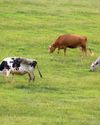
Africa goes from net carbon sink to source
New research shows Africa's impact on greenhouse gases and the need to focus on climate-smart agriculture
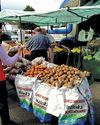
Ireland potato farmers unable to complete planting
Irish potato farmers have reported a delay in harvest and said that the UK might have to prepare for shortages of the produce. The shortfall is due to extreme wet weather during their planting season.
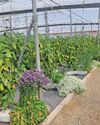
Zero-residue fresh produce a reality
Retail giants are calling for caution when using biologicals and chemical pesticides,

Big boost for mohair producers in Eastern Cape
A collaboration between the Eastern Cape Development Corporation (ECDC) and the Mohair Empowerment Trust (MET) has resulted in a R1,4 million injection into four emerging Angora goat farming operations in the Eastern Cape.
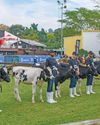
KZN Youth Show at Roval Agricultural Exhibition
The KZN Youth Show will run from Friday, 24 May to Sunday, 26 May at the Royal Showgrounds in Pietermaritzburg.
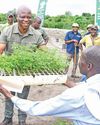
Hemp permits and irrigation system handed over
In an effort to fast-track the entry of rural farmers into the cannabis and hemp industries, KwaZuluNatal Minister for Agriculture and Rural Development, Super Zuma, visited the Shukasibheme Project in Mbazwana, a co-operative in Mseleni, uMhlabuyalingana in the Umkhanyakude District, to hand over cannabis and hemp permits as well as a borehole and irrigation system.

Meet some of the heroes behind avitourism destinations
Exploring what the Garden Route offers birdwatchers, Brian Berkman discovers some special people who run hospitable places to meet and see a variety of species.
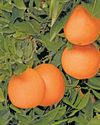
What the Citrus Academy offers aspiring producers
Cobus du Plessis takes a look at the Citrus Growers' Association of Southern Africa's Citrus Academy and how it is helping to develop aspiring farmers in the sector.

Natural-born killers of the insect world
The Myrmeleontidae family of lacewings from the Neuroptera order of insects consists of about 2 000 species of which 125 are found in South Africa.
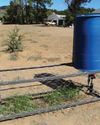
Seeder kick-starts vegetation in challenging environments
Dr George Craven of Noorspoort, Steytlerville, in the south-eastern Karoo, is successfully using a home-built 'bedstead seeder' to re-establish veld plants in an arid area, writes Roelof Bezuidenhout.